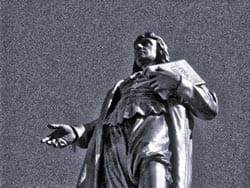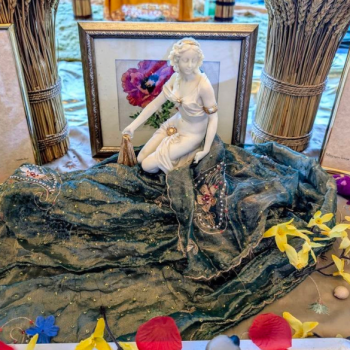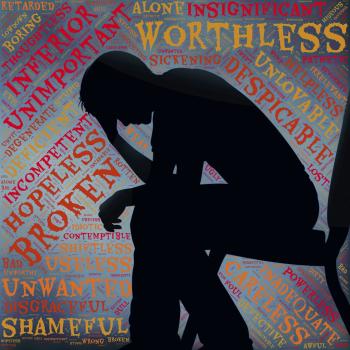 As part of the ongoing spiritual pilgrimage that I describe in my book Jesus Died for This?, I ended up serendipitously in the Philadelphia area on both Memorial Day and Independence Day. Like the rest of the lamestream media, I somehow missed Sarah Palin's half-hour secretive tour of Independence Hall and the Liberty Bell.
As part of the ongoing spiritual pilgrimage that I describe in my book Jesus Died for This?, I ended up serendipitously in the Philadelphia area on both Memorial Day and Independence Day. Like the rest of the lamestream media, I somehow missed Sarah Palin's half-hour secretive tour of Independence Hall and the Liberty Bell.
However, on July 4, I did catch snippets of patriots waving "Don't Tread on Me" flags. At first, I assumed they were simply part of the cheesy celebrations commemorating both the Fourth of July and the 150th anniversary of the Civil War. But then I stumbled upon the Independence Hall Tea Party Association's "The Energy Independence Day Tea Party."
I didn't see any visible signs of Americana Jesus at this event, though liberty-minded booths proclaimed the same "Take Back America" rhetoric espoused by David Barton of Wallbuilders, rhetoric that drapes the cross in the American flag. For those who still harbor the notion that the Tea Party is primarily a Libertarian-leaning secular grassroots movement, Sarah Posner, Julie Ingersoll and others at Religion Dispatches continue to illuminate the religious components of the Tea Party.
While walking by the booth proclaiming Ron Paul to be a "President for Peace," I began to wonder what my ancestor the Rev. Roger Williams might think of this quest to reclaim a vision of a Christian America that only exists in evangelical theme parks. Unlike revisionist historians, I'm well aware that one cannot simply transfer Williams' per-Enlightenment ideology on to a post-secular society without reducing the endeavor to religious rubbish. Still, he affords me some much-needed perspective as I try to navigate my way through contemporary church-state debates.
When Williams set sail for the New World in search of religious tolerance back in 1631, he soon found himself entangled with Governor John Winthrop (1587/8-1649), who employed biblical language to anoint the Massachusetts Bay Colony as a "City on the Hill" that was blessed by God (Matthew 5:14) and free from any and all religious dissent. Like any good Puritan, Winthrop desired to "purify" the church from Anglican excesses, but he wanted to remain on good graces with the crown.
My ancestor took the more radical route, preaching that the church had to make a clean break with the state. He advocated for "soul liberty," a term I gather means that neither the state nor the church can judge the conscience of even the heretic or the atheist. I can't begin to fathom the Christian cojones it took for anyone to stand before the Puritan mob and acknowledge that atheists have a right not to believe in God.
Even though he didn't care for some religions like Quakerism, Williams felt individual conscience must be free from the tyranny of the majority. As he noted, state sponsorship of religion would yield an unhappy situation wherein "the whole world must rule and govern the church." The merger of church and state remains "opposite to the souls of all men who by persecutions are ravished into a dissembled worship which their hearts embrace not."
Here Barton & Company follow the lead of Puritan ministers like John Cotton, who railed against Williams by advocating that only a fanatic would suggest something as daring as religious liberty. There must be some kind of religious foundation (read: Christianity) in place in order to avoid moral chaos. Williams countered this belief that arguing that men must remain free to choose their beliefs, adding that no one can accept Christ of her free will if she is forced to follow a state-sanctioned set of beliefs.




